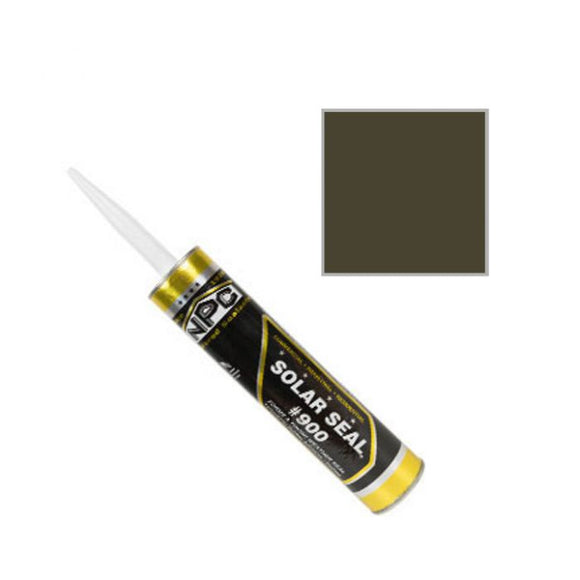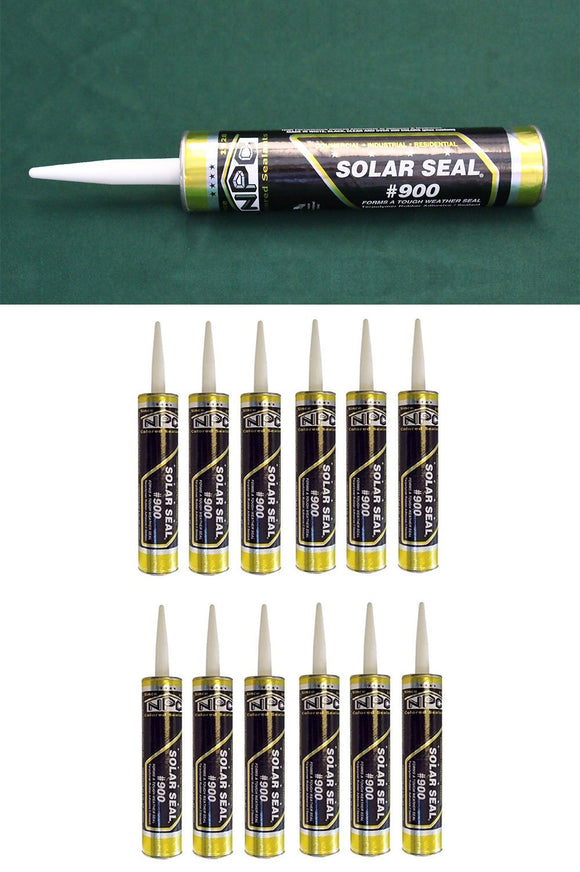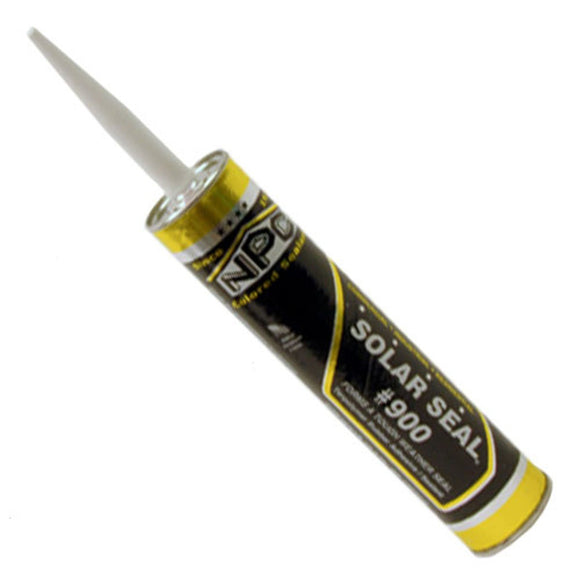Solar Seal 900 Sealant Applications include Aluminum, Architectural Metals, Asphalt Shingles, Brick & Masonry, Cedar & Redwood (primed), Copper, Cured Concrete, EPDM/TPO, EIFS Systems, Fiber Cement Board, Glass & Fiber Glass, Kynar Coatings, Metal Buildings, Precast Panels, PVC Trim Boards, Roof Flashing, Rubber, Roofing, Skylights, Sun Rooms, Termination Bars, Tile Roofing, Vinyl Siding & Windows, Wood, and many More Building Materials.
- This sealant cures to a tough, flexible bead.
- Once the skin forms you can paint the sealant
- Mold and Mildew resistant.
- Acetic acid corrosion resistance.
Color Match For Solar Seal 900 Sealant Not Guaranteed Due To Web Display
Even if the sealant color name is exactly that of your color panel, the color above may be slightly different due to how colors display on the web. In almost all instances, once installed, this is barely noticeable, if at all. Clear Solar Seal compliments any metal roof color.




